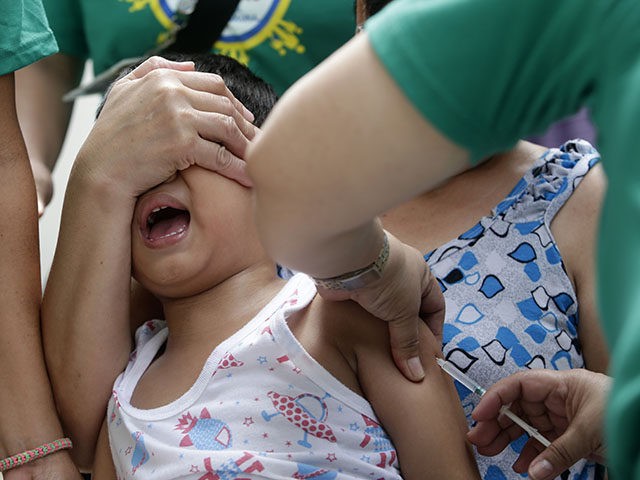Anti-vaccination campaigners have triggered the return of polio in the Philippines, the country’s Health Secretary Francisco Duque III told reporters on Friday.
On Thursday, the country’s Department of Health (DOH) confirmed that the infectious disease, known to cause paralysis and in some cases be fatal, has returned to the country nearly two decades after the World Health Organization (WHO) declared the Philippines polio-free.
Speaking at the launch of the “End Polio Now” campaign in Quezon City on Friday, Duque argued that there are “multifactorial” causes for the prevailing polio epidemic in the country but that the principal cause is the efforts of anti-vaccination campaigners spreading “misinformation” following the controversy over the Dengvaxia vaccine in 2017.
“The polio vaccine is very safe. We have nothing to worry about because the polio vaccine has been used for a long time, and it has gone through tests that prove its safety, efficacy, and affordability,” said Duque. “Please, I beg of you, for the sake of our children, take care of them. Make sure they have proper hygiene and they get vaccinated.”
“Aside from immunization, we remind the public to practice good personal hygiene, wash their hands regularly, use toilets, drink safe water, and cook food thoroughly,” he added.
Hesitancy over vaccinations became widespread in 2017 after the DOH temporarily suspended a school-based dengue vaccination program after French drug-based vaccine producer Sanofi Pasteur revealed that its product, Dengvaxia, posed greater risks to people without prior dengue infection.
The vaccine was consequently linked to the death of numerous children, leading to a criminal investigation, two congressional inquiries, and a sharp decline in the number of parents getting their children vaccinated. However, the return of polio has sparked concern from WHO, whose representative in the Philippines, Dr. Rabindra Abeyasinghe, urged “local governments to ensure that vaccination campaigns are planned and implemented effectively.”
“We remain very concerned that polioviruses are now circulating in Manila, Davao, and Lanao del Sur,” the organization said in a statement. “Every community leader, religious leader and celebrity must mobilize their communities to participate in immunization activities.”
It continued:
Parents and caregivers are advised that the best protection for their children is vaccination. It takes multiple doses of polio vaccine to achieve full immunity against polio.
The oral polio vaccine (OPV) is a safe and effective vaccine that has saved millions of lives over the years. More than 18 million people are able to walk today who would otherwise have been paralyzed, and 1.5 million childhood deaths have been averted thanks to the polio vaccine. Since the introduction of the polio vaccine in 1988, cases have decreased by over 99%.
The Philippines was declared polio-free in 2000, with the last known case recorded in 1993. The average national polio vaccination coverage stands at about 66 to 68 percent while its target of herd immunity stands at 95 percent, meaning there are still around 5.5 million children left to vaccinate.

COMMENTS
Please let us know if you're having issues with commenting.